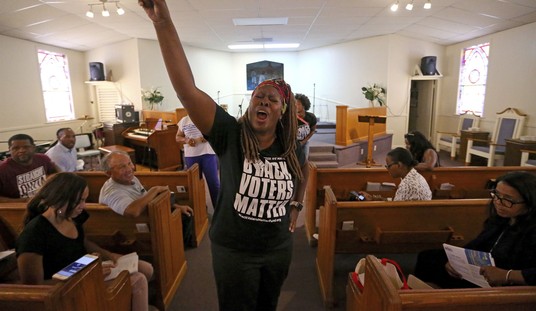“Poverty,” the New York Times declared this past week, “is suddenly the subject of bipartisan embrace,” Matthew Continetti notes at the Washington Free Beacon. Continetti adds that he’s spent “a lot of time parsing that sentence:”
There is, for example, the adverb: “suddenly” does a lot of work; it carries the weight of the entire piece on its eight letters. The condition of the working poor, after all, has been a subject of political dispute since, oh, the Industrial Revolution. The author of the Times article, Jeremy W. Peters, seems to recognize the Groundhog Day aspect of his argument when he writes, in a fine example of mixed metaphor, “To read the flurry of fundraising solicitations that flood email inboxes can, in fact, seem a lot like a rerun of the last presidential election.” Jeremy has a short memory.
There is also the matter of subject-verb agreement. Isn’t the subject of an embrace the one doing the embracing? That would make poverty the object, not the subject, of the sentence. Or does “subject” in this case mean a topic of discussion? And wouldn’t a “bipartisan” embrace be between a Republican and a Democrat, leaving poverty in the cold? How does one embrace a concept or state of being? Is poverty really a condition anyone would like to embrace—to welcome, to envelop, to receive cheerfully—in the first place? You don’t “embrace” poverty. You escape it.
The unintelligibility of the Times pronouncement does not diminish its significance, however. Mike Allen of Politico had good reason to call it the “sentence du jour”: The eight words capture, however badly, the mood in Washington, the character of recent debate. A less hurried or less pretentious writer might have said, “Poverty has of late become a subject of concern in both political parties.” The inequality business is booming. Obscene wealth is unfashionable. Poverty is “in.”
Meanwhile, the Dinocrat.com blog spots the Times transforming itself into the Onion more and more every day:
● “Fast-Food Purchase Seething With Unspoken Class Conflict.”
— Headline at the Onion, August 1st, 2001.
● “As Shop Owner, Woman Sees Troubling Sides of Herself.”
— Headline, the New York Times, this past Friday.
The article itself actually does read like a bad Onion parody, beginning with its opening:
Living in New York can curiously and frequently feel like an exercise played out on a narrow emotional field, a continual toggle between envy and guilt. You wish for more; so many others seem to have it, after all — more space, nicer furniture, a greater number of things from Lululemon. But you also harbor a discomfort at possessing plenty while legions haven’t nearly enough. In any given hour you might veer from feeling unduly blessed to woefully disadvantaged. It is not the job of politics to solve the problem of this kind of split perspective, but it remains one of the chief psychological byproducts of inequality for those who occupy a place in the city’s vast and steeply tiered middle class.
Read the whole thing, which really puts the rococo back into Tom Wolfe’s essay from the dawn of the new millennium, “In the Land of the Rococo Marxists.”
And speaking of which, what’s the deal with the Times’ italicized headlines, which just look extra silly and too cute for words pretentious?









Join the conversation as a VIP Member